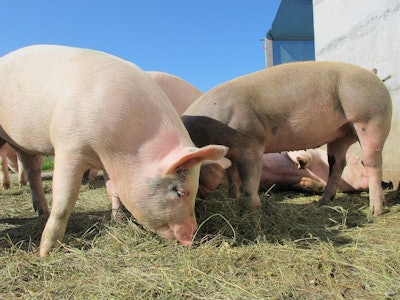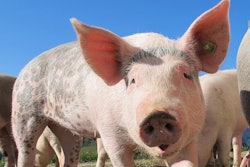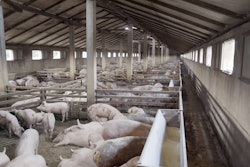
Existing vaccines for African swine fever don't protect against all known strains of the disease, according to new research from the U.S. Department of Agriculture. But they cover more strains than researchers expected.
The NAVETCO vaccine, approved for commercial use in Vietnam in 2022, proved effective against what is currently the most common strain of ASF globally during USDA's trial. It also provided significant protection against another common strain circulating in West Africa. But it did not protect against a hybrid strain from southeast Asia, according to the study.
Researchers were uncertain whether the vaccine would protect pigs from the West African strain because a hybridized strain from southeast Asia — which shares genetic components with the West African strain — had proven capable of eluding the vaccine.
While they weren't surprised that the vaccine did not prove effective against the hybrid strain in the study, they were surprised it was effective against the West African strain, according to Douglas Gladue, a former Plum Island researcher for USDA who is now the vice president of veterinary pharmaceuticals at biotech startup Seek Labs.
The hybrid ASF virus, which contains components of both the West African and southeast Asian strains, is believed to have arisen from the use of illegal vaccines in China, Gladue said. Those vaccines were based on a strain of the disease that was active in Portugal in the 1950s — a strain that is essentially extinct today.
The study also raised questions about using viral genotypes to determine vaccine suitability. USDA researchers initially believed there were about 25 known ASF genotypes, but realized in the course of their research that there were in fact six strains of the virus — the rest appear to be misidentified as unique strains due to sequencing errors, Gladue said.
So the research team tried categorizing the virus according its amino acid sequences instead, ultimately identifying seven unique “biotypes” of ASF with their own protein-based profile.
Using these protein biotypes to match viral strains to potentially effective vaccines appears more reliable than using genotypes, Gladue said.
All of today's commercially available vaccines are based on what Gladue's team named Biotype 2 — the ASF strain that is primarily responsible for most current outbreaks in Asia and Europe. Because these vaccines also appear to be about 80% effective against Biotype 1 from West Africa, today's vaccines appear effective against most circulating ASF strains, Gladue said.
“The vaccines, when used properly, are effective, but we are seeing breakthrough strains and we do know from this paper that we don't see cross-protection against all isolates of ASF,” he said.
















